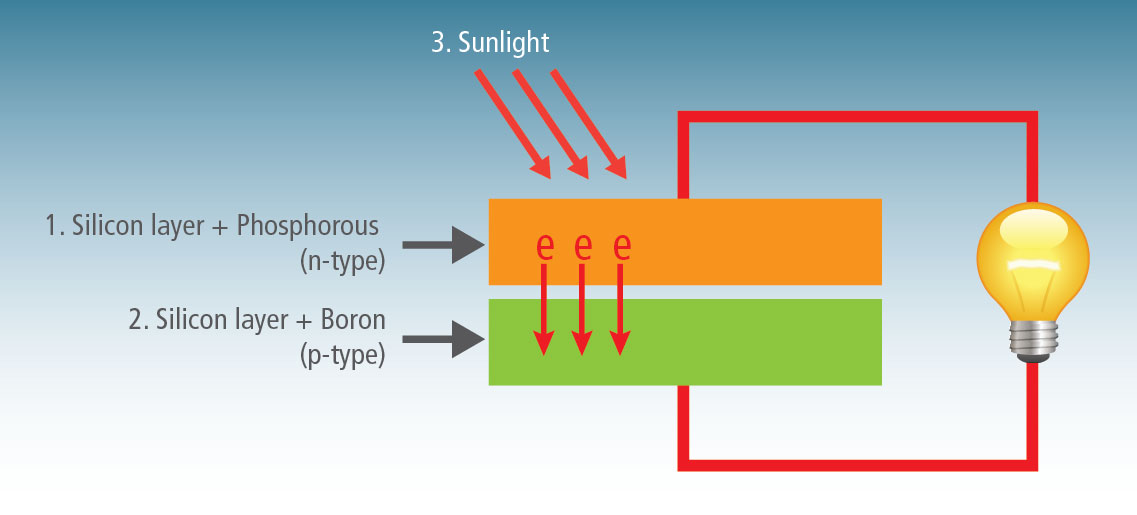There is a revolution hidden away in California’s updated 2020 building codes; Every new home in the state must now be built with enough solar panels to power the house. Not only does this make me proud to be a Californian but it also begs the question; Should you add panels to your existing home? And is there a downside to this remarkable new technology?
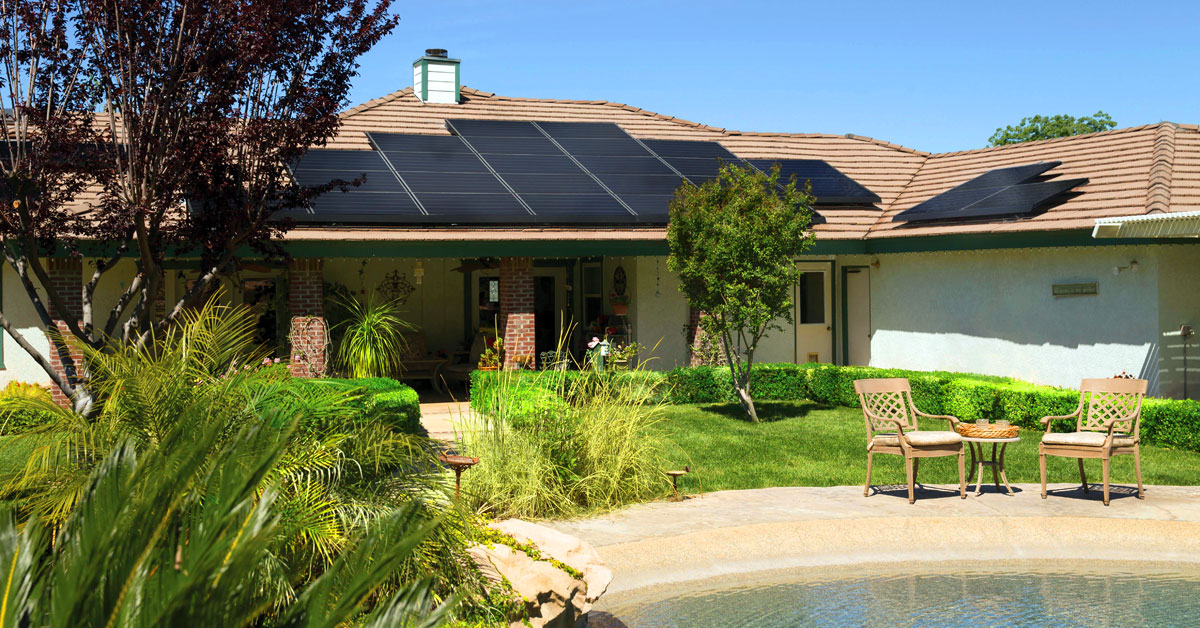
Overview
We have Albert Einstein to thank for solar power. His 1905 paper on the photo voltaic effect won him the Nobel prize, revolutionized our understanding of light and established the scientific underpinnings of all photo voltaic (PV) panels.
Fast forward to 2020 and The California Energy Commission estimates that PV and solar thermal power plants produced 13.97 percent of the state’s electricity. It also estimates that 74,000 new photovoltaic systems will be installed in the state in 2020.
Driving this boom is the fact that the cost of manufacturing PV cells (and therefor the cost of PV produced electricity) has plummeted by almost 25% over the last 5 years. California’s new building code will dramatically increase the number of homes utilizing solar power. Perhaps even more powerful than the raw numbers is the fact that the new law moves solar energy out of the realm of a fringe option to a common, required amenity on all new homes. “There are 100,000 customers annually that will see solar as a normal part of their home,” said Abigail Ross Hopper, head of the Solar Energy Industries Association. “This normalizes the solar experience so it feels less risky to the consumer.”
How does this impact those who decide to add solar panels to an existing home?
An average solar roof system can cost anywhere from $8,000 to $10,000 but should provide free electricity for 25 years or more. When you crunch the numbers this comes out to about $40 per month added to the mortgage which will save over $80 month on electricity bills.
So why WOULDN’T You do this?
Let’s take a look a the pro’s and cons:
Pro: Solar will reduce, and may eliminate, your electricity bills.
This is one of the most convincing arguments for installing solar power. You can kiss high utility bills goodbye. Even if you need to draw from the grid at night time (solar’s achillies heel) this cost may be offset by the fact that you get to sell your home generated power back to the utility. If you want to get an idea of the savings you may see here is a handy calculator
Pro: It will increase your home’s value, but…
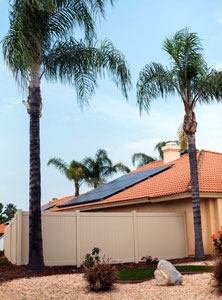 This is a tricky calculation, surprisingly installing solar does not always make sense in the context of home sales.
This is a tricky calculation, surprisingly installing solar does not always make sense in the context of home sales.
Realtor Greg McComb puts it this way; ”Installing a solar roof system can cost up to $10,000 and I have yet to see a home that increased in value that amount. If you plan on living in the home for a few years after installation you may recoup your investment but I wouldn’t look at solar simply to increase your home’s selling price.”
Here are 7 tips to help you sell your home faster
Before adding solar ask yourself these questions; How long am I planning on staying in this home? How much electricity do I actually use? What is the out of pocket cost of installation and do I have that money available?
The average “break-even” point for a solar installation is 8 years. That’s the average amount of time it takes to recoup your investment in electricity savings. If you want to do a more detailed calculation of your own break-even-point take a look here.
Pro: Solar gives you control over your energy costs.
It’s a fact of life that when you buy electricity from a utility you have to pay what they charge. This will inevitably increase over time and you have limited options when it does. The cost of solar generated electricity has fallen 70% in the last decade. You can multiply the benefits of this reduction by installing a modern, less expensive system, thereby reducing the cost of your electricity.
Pro: You will get financial help installing the system.
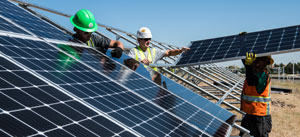 California has fantastic incentives to help you defray the costs of solar installation. The California Solar Tax Credit re-imburses up to 25% of the cost of installation. California also provides Solar Renewable Energy Credits (SREC’s) and net metering which reduce your cost even more. (Just click on the links to learn more about each of these program)
California has fantastic incentives to help you defray the costs of solar installation. The California Solar Tax Credit re-imburses up to 25% of the cost of installation. California also provides Solar Renewable Energy Credits (SREC’s) and net metering which reduce your cost even more. (Just click on the links to learn more about each of these program)
Professional Tip: These credits are being reduced or removed. By 2023 they will only apply to commercial properties so if you’re thinking of installing solar act fast.
Pro: The environment
If saving tons of money and generating your own electricity are not enough to convince you then surely saving the planet will get your attention. I’m not going to explore this aspect of solar energy here. This is California, so I assume you already know all you need to know about climate change, global warming and clean energy. Suffice to say it is the way (and until we master Fusion power) perhaps the ONLY way of the future.
And now the cons
Con: Solar panels can’t be installed on all roofs
 Many older homes, especially ones that feature cedar, slate or California’s famous Terra cotta tile are not good candidates for solar. The tiles have to be removed and replaced. This is a labor intensive and time consuming (ie expensive) process.
Many older homes, especially ones that feature cedar, slate or California’s famous Terra cotta tile are not good candidates for solar. The tiles have to be removed and replaced. This is a labor intensive and time consuming (ie expensive) process.
Many condo’s and apartments are also not suited for solar because they usually have skylights and AC units that take up a high proportion of the roof space. Renters are often short term occupants and (understandably) are not inclined to finance the cost of an installation that they may not be around to enjoy. Also it’s not unusual for urban apartment rooftops to be shaded by surrounding buildings.
Con: What if you plan on moving
As we alluded to earlier, installing solar panels right before you sell is not a good idea. Solar installation is a large financial investment that you make today and recoup over time. If you install the panels and sell your home then your buyers are enjoying the return on your investment. Yes it will increase your property value but, as we discussed above, careful calculations are needed to ensure that you don’t lose money on the deal. This is a good place to start.
Con: The upfront cost
As mentioned, solar is a long term investment of thousands of dollars. For most homeowners solar is a good idea but it does take years to start seeing the benefit. For new homeowners that money may be needed elsewhere and for older owners, or people planning on moving they may not see returns on that money.
Three easy ways to use the equity in your home
With this said solar panels provide enormous benefits for both homeowner and planet and especially as the technology advances they will play a huge role in combating climate change.
In conclusion
As other states follow California’s lead (Massachusetts is one of the states considering a similar law) the cost of solar panels will keep falling. I predict that in 20 years solar panels will be as mandatory as a door or a shower. I am happy and proud to say that my state is leading the way.
Here are some of the ways solar power has already impacted the economy;
- Annual reduction of 17 million metric tons of CO2, equivalent to a global benefit of $700 million.
- Annual reductions of “10,000, 10,300, and 1,200 metric tons of Sulphur Dioxide (SO2), Nitrous Oxide (NOx), and Particulate Mater (PM2.5) respectively … which provide annual domestic air quality benefits of $890 million.
- Annual water savings of 294 billion gallons with much of those savings located in drought-impacted western states.
credit: Vox.com
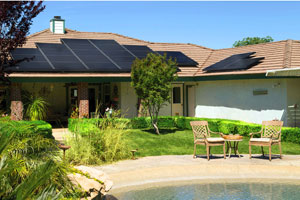


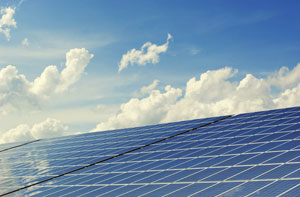 Solar panels do not drop out of the sky, they are manufactured in plants that use lots of electricity and they are made from some very toxic chemicals.
Solar panels do not drop out of the sky, they are manufactured in plants that use lots of electricity and they are made from some very toxic chemicals. 